PREVIEW
The player for this Journal volume is only available to current members or listeners with a legacy account. If you have an active membership, log in here. If you’d like to become a member — with access to all our audio programs — sign up here.
Guests heard on Volume 158
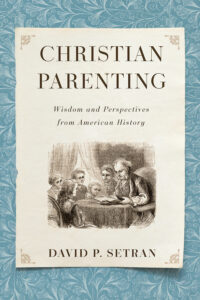
David Setran, author of Christian Parenting: Wisdom and Perspectives from American History, on how American Christians thought about being good parents in the colonial period and in the nineteenth century
read more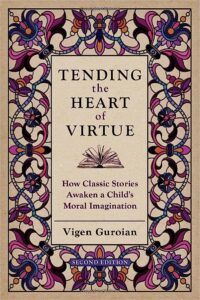
Vigen Guroian, author of Tending the Heart of Virtue: How Classic Stories Awaken a Child’s Moral Imagination, on how fairy stories serve to nurture healthy moral imaginations in children
read more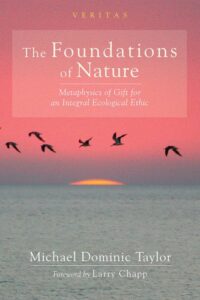
Michael Dominic Taylor, author of The Foundations of Nature: Metaphysics of Gift for an Integral Ecological Ethic, on why we need an adequate metaphysical framework for understanding the natural world
read more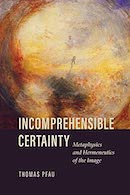
Thomas Pfau, author of Incomprehensible Certainty: Metaphysics and Hermeneutics of the Image, on the way in which images reveal to us invisible, numinous realities
read more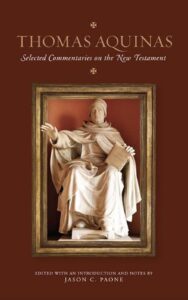
Jason Paone, the editor of Thomas Aquinas, Selected Commentaries on the New Testament, on the relative ignorance of these important books
read more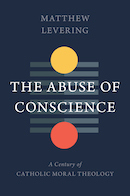
Matthew Levering, author of The Abuse of Conscience: A Century of Catholic Moral Theology, on why the virtues rather than conscience should be recognized as the heart of Christian moral life
read moreRelated reading and listening
- The recovery of an integrated ecology — In this essay, Michael Hanby unpacks the summons of Laudato si’ to an ecological way of life based on a proper understanding of creation in its fullness and integrity. (57 minutes)
- The interiority of reality —
FROM VOL. 132 D. C. Schindler discusses the thought of contemporary German philosopher Robert Spaemann, and his defense of a purposeful structure in nature. (28 minutes)) - The profound drama of human sexuality — In this lecture, D. C. Schindler explains the cosmological significance of human sexuality and why it is paradigmatic of the relationship between nature and freedom. (32 minutes)
- Flannery at 100 — In honor of Flannery O’Connor’s 100th birthday, we have gathered here an aural feast of interviews with O’Connor scholars and aficionados discussing her life, work, and faith. (3 hours, 28 minutes)
- Discipline and piety — Bishop Robert Barron on Aquinas, the man
- St. Thomas the anthropologist — G. K. Chesterton on Aquinas’s complete Science of Man
- The collaboration of bodies and minds — F. C. Copleston on Aquinas’s confidence in the embodied nature of knowledge
- A brief for “prophetic Thomism” — David Decosimo on assuming a charitable posture toward pagan virtue
- Insights from St. Thomas’s biblical exegesis — Jason Paone explains how St. Thomas’s commentaries reveal the saint’s personality, his rhetorical flair, and the Christocentric vision that underlie all his work. (24 minutes)
- Wonder, being, skepticism, and reason —
FROM VOL. 135 Matthew Levering talks about the long and rich tradition of reasoning about God. (23 minutes) - Economics and personhood —
FROM VOL. 147 Mary Hirschfeld argues that modern economics makes some fundamental assumptions about personhood, material goods, and God that prevent the development of a truly human understanding of economic life. (20 minutes) - Metaphysics and sub-creation —
FROM VOL. 144 Jonathan McIntosh claims that scholarship has tended to ignore the depth of St. Thomas Aquinas’s influence on J. R. R. Tolkien’s work. (28 minutes) - Gratitude, vitalism, and the timid rationalist — In this lecture, Matthew Crawford draws a distinction between an orientation toward receiving life as gift and a timid and cramped rationalism that views man as an object to be synthetically remade. (52 minutes)
- Metaphysical impulses beneath techno-utopianism —
FROM VOL. 38 Erik Davis describes his research on how humans’ fascination with technology is permeated with “mythic energy” and gnostic aspirations. (11 minutes) - Nature’s intelligibility — In this lecture, Christopher Blum argues that scientists need to regain a full appreciation of nature’s intelligibility, as they are apt to lose sight of reality due to the reductionism produced by their theories. (31 minutes)
- Perceiving truths that dazzle gradually — Rolland Hein on lessons from George MacDonald about the imagination as a spiritual faculty
- We wonder as they wander — Daniel Gabelman on the spiritual geography of George MacDonald’s fairyland
- Victorian ideas about belief and doubt —
FROM VOL. 148 Timothy Larsen situates George MacDonald within a Victorian understanding of faith and doubt. (17 minutes) - What is lost with labor-saving devices — Romano Guardini on what is lost when cultural pursuits eclipse natural order
- The (super)natural theology of fairy-tales — Alison Milbank describes Chesterton’s belief that story-telling is an affirmation of transcendent meaning
- Aslan, the Christ-figure of Narnia — Alex Markos explores the transformational power of Aslan as the Christ figure in C. S. Lewis’s Chronicles of Narnia. (31 minutes)
- Goodness, truth, and conscience — David Crawford examines Karol Wojtyła’s thought on the relationship between conscience and truth. (37 minutes)
- The relationship between prudence and reality — In this lecture, Ken Myers explains how the virtue of prudence is fundamentally connected with a deep and anchored understanding of reality. (54 minutes)
- Constructing your Favorites List — Ken Myers describes the new ecosystem of Mars Hill Audio’s membership/partnership program and shares clips from five recent lectures released as Bonus Features. (26 minutes)
- Why the sexual revolution “failed on its own terms” —
FROM VOL. 38 Wendy Shalit argues that when promiscuity is considered natural, women lose the leverage and power inherent in modesty. (13 minutes) - A metaphysics of realism, relationality, and personalism — John Milbank gives a survey and critique of the efforts of 20th and 21st century theologians to articulate a Trinitarian ontology that reflects reality and counters secularization. (61 minutes)
- Apprehending the enduring things — Vigen Guroian explains how children’s literature has the capacity to birth the moral imagination in our children, affirming for them the permanent things. (53 minutes)
- Mars Hill Audio Journal, Volume 162 — FEATURED GUESTS: Mark Noll, R. Jared Staudt, Paul Weston, William C. Hackett, Hans Boersma, and David Paul Baird
- “A society of friends at work” — Political philosopher Andrew Willard Jones lays out a robust vision for a just society in which virtues are formed in an analogical manner through relational obedience and trust. (71 minutes)
- Prudence in politics —
FROM VOL. 146 Henry T. Edmondson, III talks about Flannery O’Connor’s understanding of political life, which was influenced by a range of thinkers including Aristotle, Thomas Aquinas, Eric Voegelin, and Russell Kirk. (19 minutes) - The artist’s commitment to truth — Fr. Damian Ference, author of Understanding the Hillbilly Thomist, explores the depths to which Flannery O’Connor was steeped in Thomistic philosophy. (18 minutes)
- Flannery O’Connor and Thomistic philosophy — Fr. Damian Ference explores the depths to which Flannery O’Connor was steeped in Thomistic philosophy, as evidenced by her reading habits, letters, prayer journal, and, of course, essays and fiction. (48 minutes)
- Farming and our primal vocation — Shawn and Beth Dougherty make a theological case for biomimicry, or fulfilling our original vocation of tending the earth by working according to the nature of Nature. (68 minutes)
- A theology of eating —
FROM VOL. 113 Theologian Norman Wirzba examines the relationship between food and faith. (24 minutes) - Honoring the pigness of pigs —
FROM VOL. 137 Popular innovator and speaker on farming practices Joel Salatin talks about the challenges of caring for Creation within an agricultural and food system that pays little attention to the purposes and inclinations of Creation. (25 minutes) - What does it mean to be a creature? — Canon-theologian Simon Oliver explains how and why the doctrine of Creation is cardinal and must frame all theology. (62 minutes)
- Orienting reason and passions — In an essay titled “The Abolition of Mania” (Modern Age, Spring 2022), Michael Ward applies C. S. Lewis’s insights to the polarization that afflicts modern societies. (16 minutes)
- Mars Hill Audio Journal, Volume 161 — FEATURED GUESTS: Andrew Wilson, Kyle Edward Williams, Andrew James Spencer, Landon Loftin, Esther Lightcap Meek, Andrew Davison
- Rejecting “two-tiered” Thomism —
FROM VOL. 155 David Bentley Hart on how “two-tier Thomism” deviates from historic Christian understanding of the relationship between God and Creation. (42 minutes) - Let saints on Earth in concert sing . . . — In this audio reprint of an article from First Things, Church historian Robert Wilken describes how the lives of virtuous Christians became models for imitation.(46 minutes)
- Levering, Matthew — FROM THE GUEST PAGE: Matthew Levering is James N. Jr. and Mary D. Perry Chair of Theology, Mundelein Seminary, a prolific author, and the Senior Editor of The New Ressourcement, a quarterly journal founded in 2023.
- Paone, Jason C. — FROM THE GUEST PAGE: Jason C. Paone is the editor of Word on Fire Academic, a graduate fellow of the Institute for Human Ecology, and a doctoral candidate in historical and systematic theology at The Catholic University of America.
- Taylor, Michael Dominic — FROM THE GUEST PAGE: Michael Dominic Taylor works as a Teaching Fellow and Dean of Students at the Thomas More College of Liberal Arts where he teaches metaphysics, ecology, and humanities, among other things.
- Setran, David — FROM THE GUEST PAGE: David Setran is Price-LeBar Professor of Christian Formation and Ministry at Wheaton College, where he teaches classes related to the history and philosophy of Christian education, Christian discipleship, and spiritual formation.
- Pfau, Thomas — FROM THE GUEST PAGE: Thomas Pfau (PhD 1989, SUNY Buffalo) is the Alice Mary Baldwin Professor of English, with a secondary appointment in the Divinity School at Duke University.
- The theonomic nature of conscience — Matthew Levering on Reinhard Hütter’s description of conscience: “Real conscience does not give free rein to a person’s desires.”
- The aboriginal Vicar of Christ, the voice of God in the heart of Man — Reinhard Hütter on John Henry Newman’s insistence that conscience — rightly formed — bears witness to the law of God
- Conscience and its counterfeits — A 2014 lecture by theologian Reinhard Hütter examines “Freedom of Conscience as Freedom in the Truth: Conscience according to Thomas Aquinas and John Henry Newman.” (64 minutes)
- Everything about everything comes from God — Theologian Andrew Davison discusses how the idea of participation informs our understanding of God, of Creation, of being, of knowing, of loving, of law, of economics, etc. (28 minutes)
- Earthly things in relation to heavenly realities — In this lecture, Ken Myers argues that the end of education is to train students to recognize what is really real. The things of this earth are only intelligible in light of heavenly realities. (59 minutes)